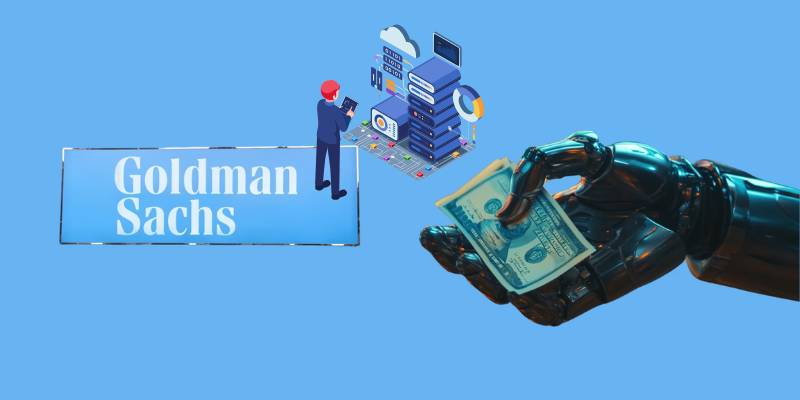Goldman Sachs has rolled out its generative AI platform, GS AI Assistant, to its entire 46,000-strong workforce, claiming big gains in efficiency—from slicing down months-long tasks to just minutes. But amid the fanfare, some leaders are sounding the alarm: Is the bank becoming too reliant on AI?
What’s Going On
- Kerry Blum, a Goldman partner, says she uses the AI assistant up to ten times a day—for things like brainstorming, polishing presentations, summarising dense documents, and doing data analysis. She calls it a productivity booster.
- But she also cautions: “It’s a tool, not the source of truth.” Human judgment, especially in banking where stakes are high, remains essential. Context and nuance aren’t always things AI does well.
- There are concerns internally (and externally) that junior and back-office roles may be most vulnerable. Bloomberg Intelligence projects that up to 200,000 banking jobs could be affected in coming years due to automation.
Why It Matters
This move isn’t just another tech upgrade—it represents a shift in how banks view work, talent, and risk.
AI’s promise is undeniable: faster turnaround, fewer tedious tasks, possibly better work-life tradeoffs for junior staff who often handle grunt work.
But there’s a flip side: over-dependence on AI can weaken skill development, make errors harder to catch (because people may stop scrutinizing), and risk legal or reputational hits if AI makes mistakes in judgment-heavy areas. Goldman is trying to walk that tightrope.
What’s Missing—but Important
Here’s where I think the conversation could use more light:
- Regulation & oversight: As Goldman leans heavily into AI, how are regulators responding? What policies are in place to ensure AI outputs in banking are safe, accurate, auditable? There’s growing pressure globally (especially in Europe and the U.S.) for banks to disclose AI use and manage risks. The article hints at responsibility, but doesn’t delve into legal guardrails.
- Bias, ethics, and fairness: AI systems often reflect biases in training data. In finance, this can mean discriminatory lending, biased risk analysis, or errors in markets. Are there internal checks at Goldman to catch and correct for these?
- Employee morale and culture: People don’t like feeling replaced, and if junior bankers feel their ‘entry-level’ roles are being automated away, that could dampen motivation or retention. How is Goldman handling that human side? Any re-training programs?
- Comparisons with peers: Other banks (Morgan Stanley, JPMorgan, etc.) are also deploying AI tools. How does Goldman’s approach measure up in terms of caution, effectiveness, and risk mitigation?
My Take
I see this as a “golden opportunity + real danger” combo. Goldman’s tactic of using AI for repetitive or writing and summarization tasks makes sense—it frees up people to do more strategic, human-centric work.
But the warning bells are legit. If the bank (or the whole industry) gets lazy and lets AI take over too much without oversight, accountability, or preserving human judgment, we might pay for it in bad decisions, reputational harm, or even systemic risk.
If I were leading this, I’d push hard for:
- Transparent governance: publish standards for when AI can be used, what oversight is required, who signs off on risky outputs.
- Hybrid workflows: humans + AI working together, not AI as a black box.
- Talent development: ensuring junior bankers still build core skills (modeling, client-interaction, judgment).
- Ethical auditing: bias checks, error logs, “what ifs” when AI fails.
Goldman Sachs is playing the long game. The GS AI Assistant could be a huge competitive edge. But edges dull fast if you lean on them too hard without sharpening them (i.e., maintaining human oversight). As we watch AI transform finance, the question isn’t just if it will help—it’s how we ensure it doesn’t hurt.

